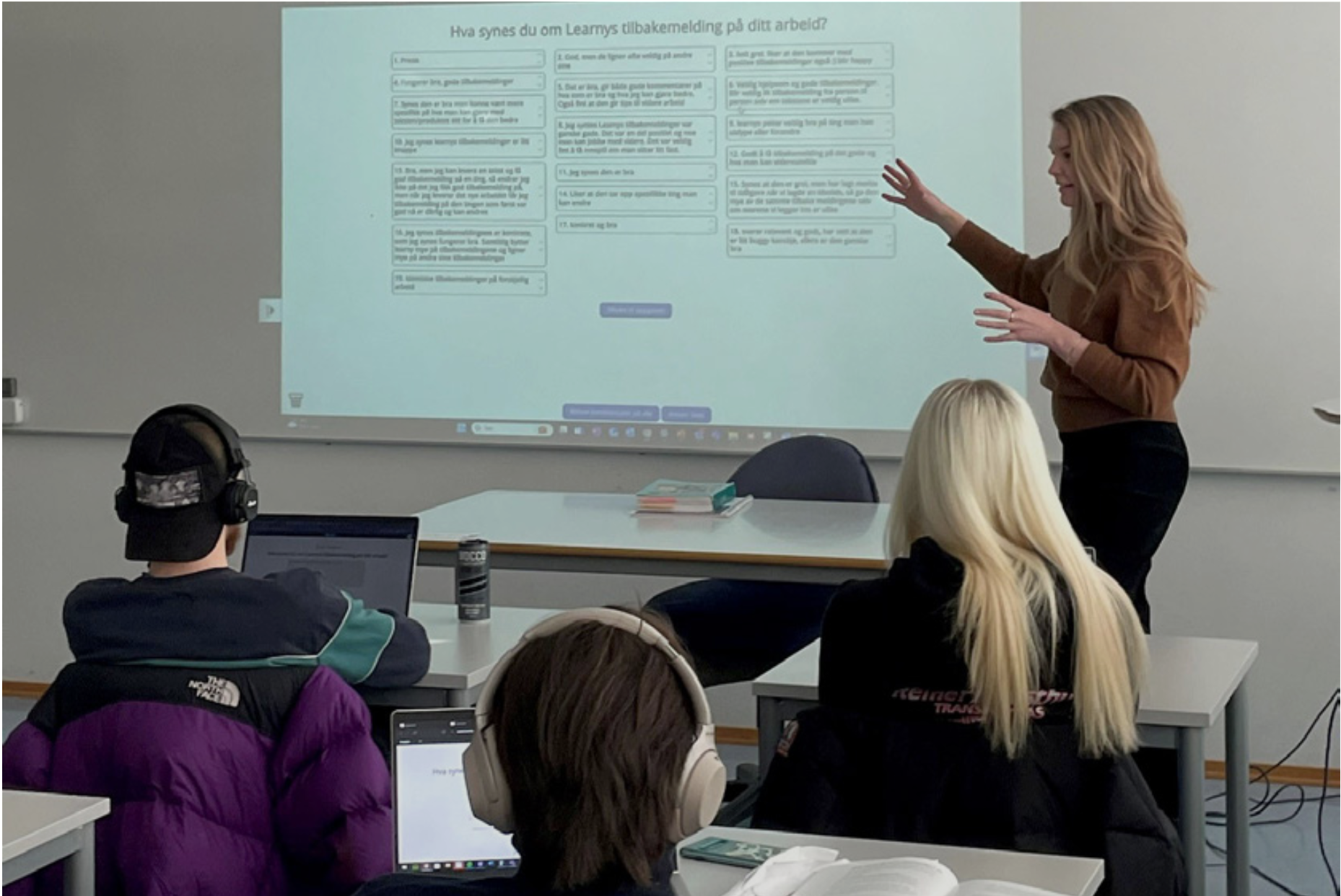At Learnlab, we believe that artificial intelligence should never replace the value of pedagogical judgment and relational competence. At the same time, we are convinced that the future of education lies in utilizing technology to meet the individual needs of each student.
Written by Tone Mari Gurskevik, digital pedagogue and customer success manager

Tone Mari Gurskevik regularly conducts courses on artificial intelligence.
Every single classroom has on average two to four students who are not receiving the adapted education they are entitled to, according to the new Norwegian Education Act. Among these, students with dyslexia constitute the largest group, while we also know that other difficulties related to language, reading, writing, and concentration are on the rise. To address these challenges, Learnlab has spent the past year developing a digital tool that we believe will revolutionize the adaptation for students experiencing difficulties with learning in a collective environment. This tool, developed in collaboration with several Norwegian schools – many aiming to be dyslexia-friendly, aims to let all students contribute and experience mastery in whole-class instruction.
With a foundation in pedagogy and technology that lowers the threshold for participation and learning, Learnlab’s entire digital platform has integrated six different artificial intelligences to optimize accommodation for each individual student. This includes “engaging reader” – a tool designed to make text accessible through reading aloud and visualization. To ensure comprehensive adapted language support, Learnlab’s solutions also use AI technologies for speech-to-text, text-to-speech, converting images and diagrams to text and speech, as well as generating new text in both Norwegian and the student’s mother tongue.
This innovative tool offers teachers several ways to adapt teaching for the students through:
- Automatic reading aloud of written text for students who need support.
- Summarizing and clarifying presented material that can be extensive and inaccessible for many.
- Proofreading of student contributions before they are shared with the class.
Imagine the class working on an interdisciplinary topic where, for example, students are to delve into the body’s systems and the changes that occur physically and psychologically during puberty. The teacher uses an adapted educational resource from Learnlab, in which the students, either in advance or in the classroom, base their work on a subject text that can be read aloud, visualized, or summarized. The teacher then initiates a Colab – a collective, digital session where interactive questions are posed along the way for the students to respond to. Here, students can have the questions read aloud, choose whether they want to respond orally or in writing, and the contributions are language-cleaned before being displayed for the other students. If desired, students can have the main points of the session summarized or receive suggestions for questions they themselves can ask based on the classroom discussion. In this way, AI technology can invite students who often stand outside the community of mastery into the fold and allow them to express themselves and demonstrate their competencies.
In the upcoming school year, this technology will be further developed and tested. Learnlab invites schools and other organizations to collaborate on developing these exciting tools.
At this year’s NKUL, Learnlab will launch functionalities for inclusion and formative assessment using AI through our brand-new version of Colab!
Would you like to learn more about how to use Learnlab’s digital tools with integrated artificial intelligence?
Get in touch for a non-committal conversation.
